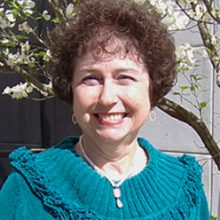Resources for Mental Health
Mental Health
Since 1985, NC AHEC has received special state funding to supply comprehensive assistance to the state’s community mental health facilities.
NC AHEC delivers educational services, training programs, and information services with the goals of increasing the linkages between academic and practice settings; improving the practice environment for mental health professionals; and enhancing the workforce development of the public mental health system, thereby increasing access to appropriate care for citizens in every community in North Carolina.
NC AHEC MENTAL HEALTH EDUCATION DIRECTORS
Each AHEC has a director of mental health education. These individuals are themselves mental health professionals or educators with mental health preparation, and many serve as faculty for AHEC programs. The AHEC libraries have additional staff who provide information and outreach services to mental health facilities and personnel.
In addition to the contributions of university faculty, the AHEC mental health directors, and the AHEC librarians, many mental health professionals from NC AHEC communities serve on AHEC advisory and program planning committees to guide the development and implementation of mental health educational programs.
UNDERGRADUATE AND GRADUATE EDUCATION
NC AHEC supports the off-campus rotations of medical students from the five medical schools for portions of their training in psychiatry. One of the advantages of the AHEC sites is that they expose students to community-based programs along with inpatient treatment. Rotations to AHEC psychiatric sites have been highly rated by students who find them as well suited to the training of the future generalist as to that of the future psychiatrist.
We also support the rotation of psychiatry residents—and in the case of one school, doctoral psychology interns—from the five medical schools to community mental health facilities in North Carolina. The goals of these training experiences are to expose the physicians in training to the challenges and opportunities of community psychiatry in North Carolina and to interest them in selecting such a practice setting after completing their residency training at the university. Supervision for the rotations is provided on-site by the psychiatric staff of the centers, in cooperation with on-campus supervisors.
OFF-CAMPUS DEGREES
We support the efforts of the ECU and UNC-Chapel Hill Schools of Social Work to bring their MSW programs to off-campus locations. To date, 80 students have graduated from ECU distance degree programs offered through South East AHEC in Wilmington and Southern Regional AHEC in Fayetteville. The UNC-Chapel Hill School of Social Work is currently offering their MSW distance degree program in Fayetteville.
CONTINUING PROFESSIONAL DEVELOPMENT
Continuing professional development, including continuing education, is a major focus for the mental health activities of the AHECs and their affiliates at the universities. This includes programs targeted at specific disciplines as well as multi-disciplinary programming focused on treatment, management, and assessment issues.
The AHECs work at three basic levels in terms of continuing professional development programming. The primary focus is addressing the needs of the Area Programs for Mental Health, Developmental Disabilities and Substance Abuse Services. The AHECs design and offer educational activities based on periodic needs assessments of their local agencies.
Secondly, the AHECs work closely with management teams and committees representing area programs to develop relevant training appropriate to regional mental health needs. AHECs work cooperatively with each other to reduce duplication of effort and enhance coordination across the state. Training focused on the transition of mental health providers to managed care and cross-training in mental health and substance abuse are examples of needs addressed by all AHECs.
Finally, the Division of MH/DD/SAS periodically identifies issues, such as crisis intervention, which warrant statewide continuing education programs, and the AHECs assist the Division to offer this training. Computer-assisted instruction, teleconferencing and other distance learning technologies are used along with traditional instructional methods, to deliver continuing professional development throughout the state’s 100 counties.
TECHNICAL ASSISTANCE, CONSULTATION, AND INFORMATION SERVICES
The NC AHEC mental health directors extend technical assistance and consultation to the area programs and other mental health facilities in order to meet individual agency needs. This assistance may be provided by the directors themselves or by others under AHEC auspices, such as on-site case consultation by faculty of a department of psychiatry, assistance with workforce distribution tracking and analysis, or other individualized technical assistance. The AHEC librarians whose focus includes mental health outreach services, emphasize the access and extension of computer-based information services through the AHECs and computer databases.
The nine North Carolina AHECs have formed a network to make comprehensive information services available to practitioners, even in remote areas. The AHEC libraries are networked to the state’s four university health sciences libraries as well as other libraries in the state. Health care personnel can obtain books, journal articles, videotapes, and computer database searches from their local AHEC, either directly or through interlibrary loan.
TRENDS IN MENTAL HEALTH WORKFORCE DEVELOPMENT
As the impact of managed care and regional mental health care networks continues to evolve, mandates to treat multi-handicapped patients in local community settings have produced a renewed emphasis on the development of interdisciplinary assessment and treatment teams in area programs. AHECs continue to enhance interdisciplinary training opportunities, support the rotation of family practice residents to community mental health centers, and promote strong behavioral medicine curricula in family practice residency training programs.
The prevalence of patients in primary care settings who have mental illnesses indicates the need for better linkages between primary health care and mental health care. AHECs are expanding efforts to address this need through innovative programming in areas such as crisis intervention, substance abuse, geriatric mental health, and child psychiatry.
Recognizing that a significant percentage of mental health clients in the public system are from minority groups, yet the majority of mental health professionals are non-minorities, AHECs promote the recruitment of racial and ethnic minority students into mental health professions through special regional programs.
MENTAL HEALTH EDUCATION AND TRAINING RESOURCES
Departments of Psychiatry
Duke University
East Carolina University
UNC-Chapel Hill
Wake Forest University
Schools of Social Work
East Carolina University
UNC-Chapel Hill





